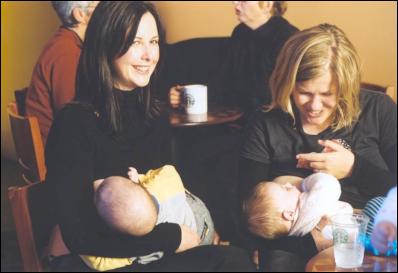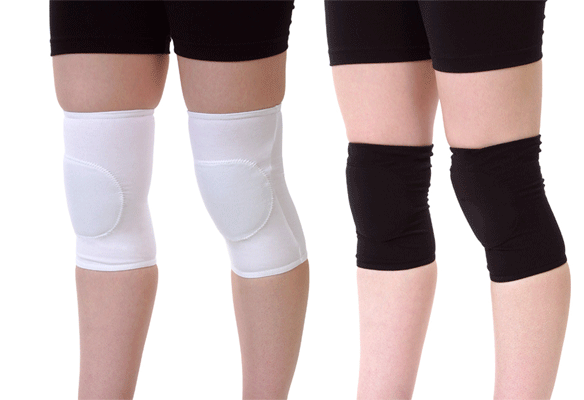In all honesty even non breastfeeding mums can feel apprehensive too! Previous discussions here and on Facebook have shown bottle feeding mums are concerned people are judging them over not breastfeeding - so it seems a lot of mums are sensitive to how other perceive them either way. It's nice to remember this and always smile at a mum with a baby, regardless of how she is feeding.
Public breastfeeding really is one of those things that quickly becomes "normal", the more you do it the easier it becomes - the more you put it off or build it up, the worse it can seem (bit like many things). So I thought I would share some tips and alternatives to covers if you feel self conscious (and kudos if you don't!); feel free to reply with yours.
Hints & Tips
- Don't panic in the early days: Some mums express concern at how "obvious" feeding their newborn is when concentrating on getting baby latched well; wondering if they will ever be "discreet enough" to feel comfortable doing it in public. Take each day as it comes, even if you feel you need to cover up more now, this may well change as you both gain confidence and baby develops.
- Practice feeding at home in front of a full length mirror: When you are looking down on baby feeding, you can see much more than someone opposite you. Feeding in front of a mirror gives a better idea of the view others get whilst feeding.
 |
| Angelina Jolie |
- Start small: Often you will hear people say "I can't even feed in front of family", but actually family can more daunting than strangers for some mums! It can be a good idea to practice a few times in a place you feel comfortable - perhaps a local quiet park or friendly village library or cafe.
- Lean back slightly when you feed: If you have a baby that "pops off" frequently, this can be more obvious in typical supine positions such as the cradle or cross cradle hold. As demonstrated on the left by Angelina Jolie, leaning back slightly makes baby more prone, so if they pop off their head still blocks the view. It can also reduce the amount of coming off and reattaching babies as gravity is on their side!
 |
| "V" Clutch Hold |
- Try different positions: Mums sometimes express feeling more exposed if they use a hold such as the clutch/ruby/football hold, because their breast is not shielded by baby's head in the same way. If this position works for you and baby, modifying it to an upright "V clutch hold" can work even better for some mums.
You begin holding baby as you would for a typical clutch hold, then move baby upright until he forms a "V" shape with his body (as per the picture on the right). Your breast size/shape and the length of baby will determine where baby's legs and feet end up. When supporting baby in this hold, use your wrist and palm to provide firm support to baby's shoulder and upper back, with the thumb and first finger holding under baby's ears. You should avoid placing your hands higher than the ears and onto baby's head as feeding nerves run through this area. Pressure can therefore cause baby to pull backwards from the breast or stop rooting/latching behaviours.
- Experiment with different clothing. Some mums find specific breastfeeding clothes are great, others find them tricky - with holes or slits in the wrong places depending upon your shape! If you have small to medium breasts, wearing a stretchy vest top that can be pulled down at one side to feed, with an open shirt/cardigan over the top can feel very covered. Alternatively you can also buy breastfeeding vest tops that can work well for this such as the Glamourmom Tank, or the Breast Vest you can layer. A normal shirt can work well too, as when opened slightly it creates a "flap" for cover - without having to be opened all the way down if you feel sensitive about your tummy area. Alternatively you can cover tummy using a "boob tube" pulled down to around your middle, or again buy something made for the job such as a band (just covers tummy area) or a BelleBelly which covers from underbust to hips.
Some mums say breastfeeding clothes are "boring" or "obvious" ie a zip or flap under the breast area, and they want to get back into stylish clothes. If this is you check out Bella Mama who have a wide range of modern nursing clothes with different opening options. There are lots of modern ranges available now - feel free to recommend any you love!Alternative to Nursing Covers
Perhaps the most obvious alternative to a nursing cover is a baby carrier or sling. These have the added bonus over a cover in that you can also carry baby in them, give yourself some hands free time, and are often fab for soothing an unsettled infant You can pick a carrier based on what positions work well for you. My favourite carriers for breastfeeding, in no particular order...

 Ring Sling: Suitable from newborn through to toddlerhood.
Ring Sling: Suitable from newborn through to toddlerhood.With a ring sling it's easy to pull the sling higher up baby's head, which provides even more cover whilst still giving you a clear view of baby.
If feeding sitting down you can loosen the ring to allow the top rail to pull looser and provide as much fabric as you need, again giving lots of play to use as a "fixed in place cover" even if you want to move baby to a more upright/tummy to tummy position from a different carry. With a bit of practice you may also be able to master adjusting the sling to allow you to walk around breastfeeding hands free, with the sling supporting baby.
Reach into the sling and arrange your clothing. Turn your baby so they are tummy to tummy with their head in the correct position to reach the breast for latch on. Once they are happy feeding you can tighten the sling to fully support your baby so that your hands are free. This may take practise but is worth persevering, then you can breastfeed anywhere. (slingeasy.co.uk)A sling also covers the tummy area for those that prefer and ring slings with a tail (as per the picture on the right) provide another swathe of fabric for the super conscious to pull over the top.
 |
| Cradle hold |
 |
| Upright hold |
Pouch Sling - Best for mums who like a quick on and off with little learning curve.
 |
| Home made Mei Tai |
To feed you can sit down and loosen the straps, which allows you to move baby into a different position whilst still being covered from the front. Some also have a sleep hood, you can see the brown satin hood on the carrier to the right. As baby gets taller this can be pulled up and secured to the straps, providing extra coverage if required.
Again you can wear a jacket, cardigan or open shirt over your carrier to provide more coverage at the sides if you have a slimmer carrier and feel more exposed there. Some carriers have a wide enough body to "close any gaps". With practice some mums can master feeding walking round breastfeeding in an upright hold too.
Wrap: More of a learning curve but excellent weight distribution and often very soothing for unsettled infants.
 |
| Ellaroo woven wrap |
 |
| Kari-me stretchy wrap |
The strategic blanket:
 If you don't fancy a carrier, a strategic blanket can work well - particularly so if you just want a little extra coverage whilst baby is latching, but feel more comfortable once they're settled. Not very practical if you have a wiggly baby who arches away from the breast, or one prone to flailing arms and legs; otherwise you can soon find you don't have enough hands to untangle baby and hold the blanket in place. Alternatively some babies will tolerate something lighter like a muslin better, so they don't feel something heavy over their head. Nell demonstrated this at the launch of one of our groups in the image on the right (there were a lot of cameras and a couple of TV teams vying for a shot!)
If you don't fancy a carrier, a strategic blanket can work well - particularly so if you just want a little extra coverage whilst baby is latching, but feel more comfortable once they're settled. Not very practical if you have a wiggly baby who arches away from the breast, or one prone to flailing arms and legs; otherwise you can soon find you don't have enough hands to untangle baby and hold the blanket in place. Alternatively some babies will tolerate something lighter like a muslin better, so they don't feel something heavy over their head. Nell demonstrated this at the launch of one of our groups in the image on the right (there were a lot of cameras and a couple of TV teams vying for a shot!)As a final note - remember you are simply giving your baby milk of his own species. If someone is offended at you choosing not to give your baby an alternative which carries risks - who really has the problem? Eyes have a handy avert function we can use if we would rather look somewhere else - where would the list end if we asked everyone to cover up everything that anyone could ever perceive as something they would rather not look at?
Related Posts:
Let's do breastfeeding covers
Breastfeeding in public is offensive - see for yourself













